 Narrowsburg
NarrowsburgLight Rain Fog/Mist, 43°
Wind: 8.1 mph
 Narrowsburg
NarrowsburgEvery year, from Thanksgiving week through the end of the year The River Reporter runs a special section titled “Celebrations” in place of our usual “Currents” leisure …
Stay informed about your community and support local independent journalism.
Subscribe to The River Reporter today. click here
This item is available in full to subscribers.
Please log in to continue |
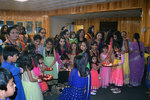
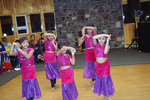
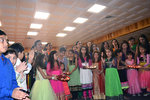
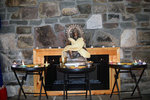
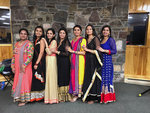
Every year, from Thanksgiving week through the end of the year The River Reporter runs a special section titled “Celebrations” in place of our usual “Currents” leisure section. We also typically pick a common theme for the features in those issues.
This year, the theme is “Let there be light.” And this year, we are going to start our themed features a week early, because the imagery of light is one so universal that it covers not only the more traditional Western religions we think of during the holiday season, Christianity and Judaism, but many others as well—including Hinduism. As we discovered in recent conversations with Shivani Patel, one of the managers of Pete’s Market in Narrowsburg, NY, there’s a major Hindu celebration, Diwali, that occurs around this time. Like Hannukah, it is known as the “Festival of Lights.” And the small but thriving community of Hindus that lives in Sullivan County celebrated it right here in the community hall of Rock Hill’s Emerald Green on November 12.
Diwali is a five-day festival which actually took place this year from October 26 through October 30. In keeping with the symbolism that seems to be given universally to the image of light, it celebrates not only the victory of light over darkness, but good over evil, knowledge over ignorance, hope over despair. Diwali night itself is the third night, and is scheduled to occur on the new moon of the Hindu lunisolar month Kartika; like Hanukkah and Easter, it is a moving festival. That night commemorates an episode in which Lord Rama returned home after being exiled and was welcomed with rows of lights radiating from every household. Laxmi, goddess of wealth, is thought to roam the earth that night, and the lights are also designed to welcome her in. That night, Hindus celebrating around the world light literally hundreds of millions of lights, typically small clay oil lamps called “diya” or candles, and put them on housetops, in doors and windows, and around buildings.
In Sullivan County there weren’t quite millions of lamps. But a group of moms whose children attend the Arya Dance Academy in Monticello, which takes place at Monticello’s Best Western Hotel, owned by Payal Patel, came together to create the Diwali celebration in Rock Hill at the community hall in Emerald Green.
As you can see from the photos, there were indeed lights, but the owner of the hall had concerns about fire, so there were not as many as one would find in a typical Diwali celebration. But there certainly were people: over 100 family and friends attended the event. There was also plenty of dance, and color: the women in their traditional saris, the men in traditional kurtas.
Hinduism is a very rich and diverse religion, and apparently in different regions, each of the five days of Diwali may mean slightly different things, and be associated with more than one god or goddess and story. Shivani told us that, as celebrated by the community here, on the first day, Laxmi the goddess of wealth is worshipped. The second day celebrates the victory of Lord Krishna over the demon Narakasur, which made the world free of fear. As noted, the third day is the main festive day, commemorating Rama’s return from exile. The fourth day marks the beginning of the new year, as business owners end their old year and start their new fiscal year with the blessing of Laxmi. And the fifth day of Diwali celebrates the loving, life-long relationship between siblings.
Interestingly, according to Shivani, the November 12 celebration started with the lighting of a lamp followed by the Pledge of Allegiance, “as it is very important for our kids to know their American heritage as well as their Hindu heritage.”
From these pictures, and what we have read about Diwali, we think it would also be fun for those of us from a different background to learn more about the heritage of our Hindu neighbors.
Comments
No comments on this item Please log in to comment by clicking here